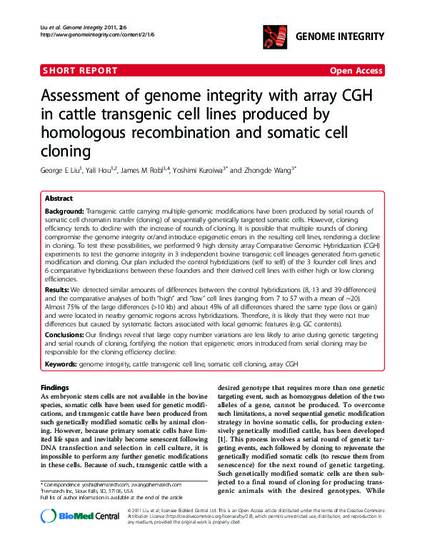
Transgenic cattle carrying multiple genomic modifications have been produced by serial rounds of somatic cell chromatin transfer (cloning) of sequentially genetically targeted somatic cells. However, cloning efficiency tends to decline with the increase of rounds of cloning. It is possible that multiple rounds of cloning compromise the genome integrity or/and introduce epigenetic errors in the resulting cell lines, rendering a decline in cloning. To test these possibilities, we performed 9 high density array Comparative Genomic Hybridization (CGH) experiments to test the genome integrity in 3 independent bovine transgenic cell lineages generated from genetic modification and cloning. Our plan included the control hybridizations (self to self) of the 3 founder cell lines and 6 comparative hybridizations between these founders and their derived cell lines with either high or low cloning efficiencies
